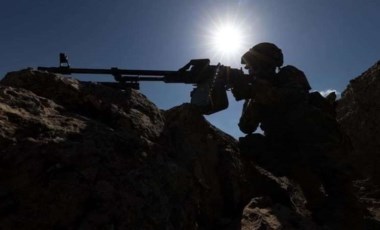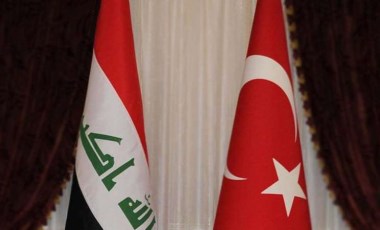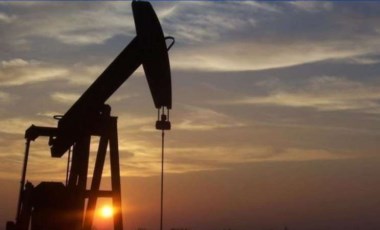Explainer: What is stopping the Iraq-Turkey oil pipeline restarting?
A crude oil export pipeline from Iraq to Turkey is ready to resume operations, which have been suspended for the past six months, but flows have yet to restart.

Turkey's energy minister has said the pipeline is prepared for shipments to begin, but two senior Iraqi oil officials said on Sunday that Iraq has not received official notification from Turkey on whether the pipeline is ready.
Iraq, OPEC's second-largest oil producer, exports about 85% of its crude via ports in the south. But the northern route via Turkey still accounts for about 0.5% of global oil supply.
A senior energy adviser told Reuters that Iraq was also waiting for talks on "lingering financial and technical issues".
Here is an outline of the pipeline dispute:
What Prompted the Shutdown?
Iraq's semi-autonomous Kurdistan Regional Government (KRG) began exporting oil independently in 2013.
KRG exports flow through a KRG pipeline to Fish-Khabur on the northern Iraqi border, where the oil enters Turkey and is pumped to the port of Ceyhan on its Mediterranean coast.
Iraq's federal government says state-owned marketer SOMO is the only party authorised to manage crude exports via Ceyhan.
Turkey shut down the pipeline because Iraq's federal government won the right to control loading at Ceyhan. Iraq's SOMO would have to instruct Turkey on ship-loading, or the crude would have built up in storage with nowhere to go.
Turkey halted flows through Iraq's northern oil export route after an arbitration ruling on March 23 by the International Chamber of Commerce (ICC) which ordered Ankara to pay Baghdad damages for unauthorised exports between 2014 and 2018.
The move sent oil prices down towards $80 a barrel.
On March 25, Turkey stopped pumping around 450,000 barrels per day (bpd) of Iraqi oil via the pipeline to Ceyhan. This comprised 370,000 bpd of KRG crude and 75,000 bpd of federal crude, a source familiar with the pipeline's operations said.
What are the Disputes Over?
Iraq filed for arbitration in 2014 with the Paris-based ICC over Turkey's role in facilitating oil exports from Kurdistan without the consent of the federal government in Baghdad.
Iraq said that by transporting and storing oil from Kurdistan and loading it on tankers in Ceyhan without Baghdad's approval, Ankara and Turkish state energy company BOTAS violated provisions of an Iraq-Turkey pipeline agreement signed in 1973.
In March, the ICC ruled in Iraq's favour for the right to control loading at Ceyhan and to have access to see what was being loaded, a source familiar with the case has told Reuters.
Turkey was also asked to pay 50% of the discount at which KRG oil was sold, three sources said.
Based on several rulings, the net amount Turkey owes Iraq is about $1.5 billion before interest, a source familiar with the case said. According to a Turkish source, Iraq's initial demand was for about $33 billion.
A second arbitration case, which could take about two years, would cover the period from 2018 onwards.
The Turkish government and the governments in Baghdad and Kurdistan have released statements since the court ruling, but none included full details about the decision.
In addition, the treaty regulating the pipeline obliges Baghdad to pump a minimum guaranteed volume through it.
This translates into a minimum payment to Turkey, regardless of the amount of crude that flows, as long as the pipeline is operational and could further complicate matters, an Iraqi official said.
Maintenance Work
Iraq said in May that the stoppage in March coincided with a request by Turkey to check the pipeline and storage tanks for any damage resulting from a massive Feb. 6 earthquake.
The two countries agreed to wait until a maintenance assessment on the pipeline was complete to restart flows, while still engaging in the legal battle over arbitration awards.
In April, Iraq petitioned a U.S. federal court to enforce the ICC arbitration award. Ankara also said last month it was weighing legal action against Iraq.
Turkey is seeking a halt to the U.S. litigation and a lack of progress on resolving this issue was among the reasons behind the postponement of a planned August visit to Iraq by Turkish President Tayyip Erdogan.
Sources have said Erdogan is likely to visit Baghdad this month, but there has been no official confirmation.
Turkish energy minister Alparslan Bayraktar made a surprise announcement at an industry event in Abu Dhabi on Oct. 2, when he said the maintenance was complete and the pipeline would resume work within the week.
Baghdad has not officially commented on the matter since and officials have said talks were ongoing.

En Çok Okunan Haberler
-
 Kurultay sonrası yol haritası açıklandı!
Kurultay sonrası yol haritası açıklandı!
-
 Dikkat çeken 'Erdoğan ve Suriye' mesajı
Dikkat çeken 'Erdoğan ve Suriye' mesajı
-
 5 kişi hayatını kaybetti, yaralılar var!
5 kişi hayatını kaybetti, yaralılar var!
-
 İptal kararında olağanüstü kurultay da iptal olur mu?
İptal kararında olağanüstü kurultay da iptal olur mu?
-
 Kıymeti bilinmeyen kişiler hangi burçlardan çıkıyor?
Kıymeti bilinmeyen kişiler hangi burçlardan çıkıyor?
-
 Ümit Özdağ'a iddianame tartışması istifa getirdi
Ümit Özdağ'a iddianame tartışması istifa getirdi
-
 Berna Laçin'den 'alkol boykotu' çağrısı
Berna Laçin'den 'alkol boykotu' çağrısı
-
 'Bir iftiracı tanığın daha ipliği pazara çıktı'
'Bir iftiracı tanığın daha ipliği pazara çıktı'
-
 CHP'li Oğuz Kaan Salıcı'dan kurultay açıklaması
CHP'li Oğuz Kaan Salıcı'dan kurultay açıklaması
-
 Lise öğrencisi okul bahçesinde ölü bulundu
Lise öğrencisi okul bahçesinde ölü bulundu


